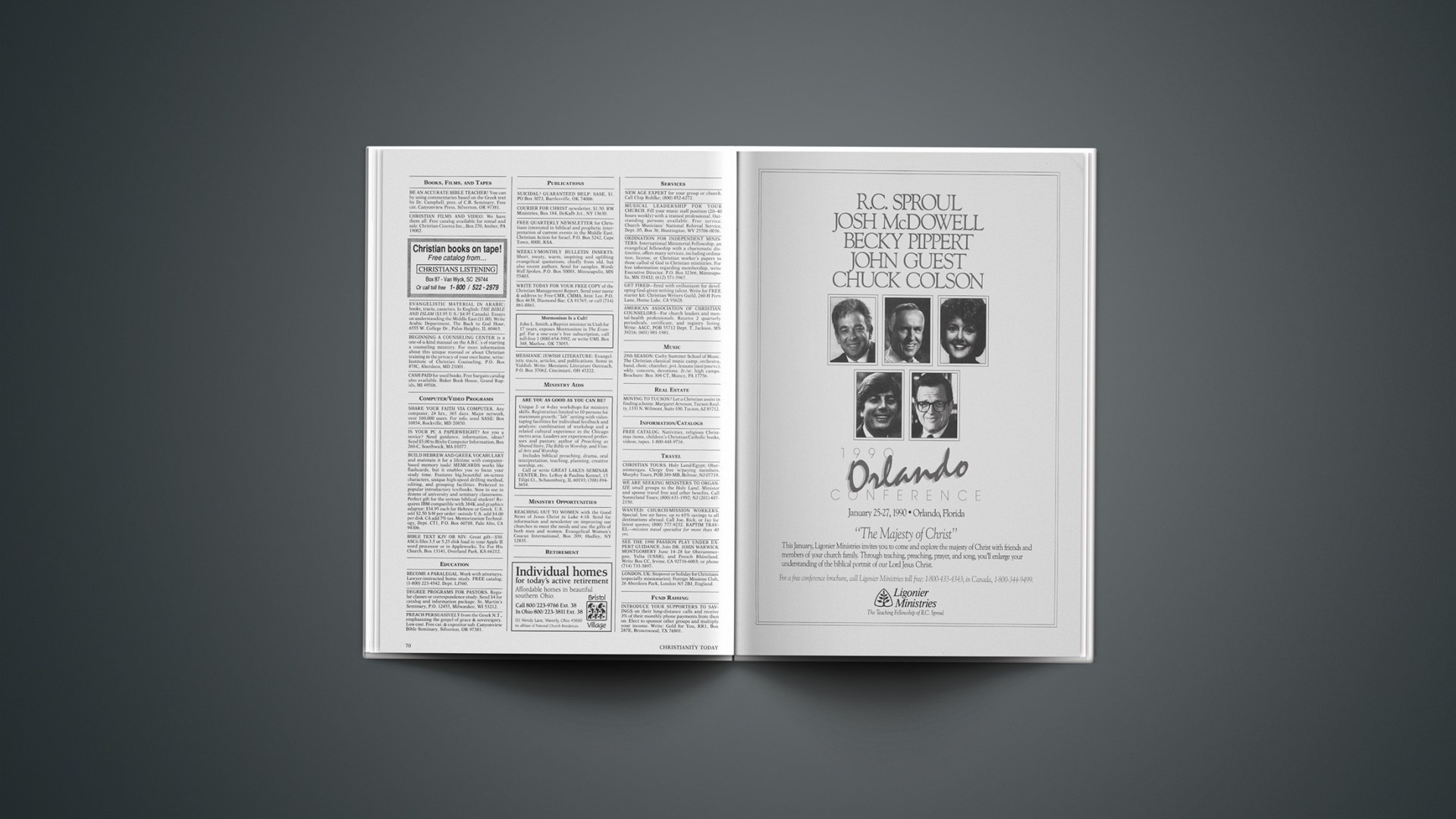I‘ve opposed abortion ever since I knew what it was. During my years in government I saw the wanton taking of an unborn life as an assault against the individual dignity that our nation’s system of law was designed to protect.
When I committed my life to Christ, I met the Author of human dignity. My moral convictions deepened as I discovered the beauty and purpose of the Creator’s design for his creatures.
That’s why I have fervently supported the efforts of the thousands of Christians who protest at abortion clinics. I admire the commitment of those who are willing to be arrested and go to jail as prisoners for the sake of those who cannot speak for themselves.
We should all be fighting this battle for unborn lives, seeking both to rescue the perishing and to pierce the callous conscience of a nation that has chosen to allow the killing.
But I have grown increasingly uneasy about the conduct of some involved in this movement and how Christians have accordingly been portrayed in the mass media. Rather than piercing anyone’s conscience, I wonder if we are not stabbing both our neighbors and our cause instead.
In much of the coverage, we have witnessed strident, often ugly confrontations. I, of all people, well understand that editors can select the most offensive photos that caricature Christians. But even so, our stridency has played into their hands.
This is counterproductive. Prolifers, according to most polls, are in the minority; if we are to win the battles in state legislatures coming in the wake of the Webster decision, we must convince wavering voters and legislators. News footage of Christians screaming and waving their Bibles, faces twisted with hate and anger, hardly helps our cause.
And even if we were to win in the battleground states, that will not be the end of the prolife struggle. True, we will have brought human law into conformity to God’s law—a good end, but not enough. While the law is a moral teacher, law alone cannot change people’s moral choices. Women will still seek out illegal abortions. A recent report from Missouri indicates no decline in abortions since Webster.
So we must work on a more fundamental level than legislation alone, painting a fresh moral vision on our dingy national canvas, a vision of hope and human dignity. We must woo people’s hearts toward righteousness.
But we cannot woo unless we love. It is more than the battle against abortion that suffers when Christians conduct themselves with anger and hate. We wound our witness of the truth of the gospel and the love of Jesus Christ.
Two Choices
One cannot win debates by anecdote, but I am not writing here to convince opponents; I am writing for the family. So allow me to offer two images of the choice before us.
A friend recently told me the tragic story of a young woman who was brutally beaten and raped. Though she lived, she is now beset by nightmares, severe emotional trauma, and stress. And some weeks after her assault, she discovered that as a result of the rape, she was pregnant.
This young woman is a Christian, opposed to abortion. Yet the violence of her attack was destroying her. She sought pastoral counseling, and then, sincerely believing she could not emotionally survive the pregnancy, made the anguished decision to abort.
On the appointed morning, she miserably made her way to an abortion clinic. There she encountered a group of protesting Christians, who, as she walked slowly toward the clinic doors, pointed and shouted angrily at her across the barricade: “Murderer! Murderer! Murderer!”
Those shouts of hate did nothing to change the girl’s decision. They did, however, rub salt into her raw wounds.
Let me paint another picture, this from a friend in Michigan. Ann serves on the board of a pregnancy-counseling center offering alternatives to abortion. One Saturday their center was picketed by University of Michigan students representing an abortion-rights group. Among them were a number of lesbians asserting a woman’s right to control her own body. The Christians and the militant homosexuals had little common ground. Television camera crews stood by to record whatever transpired.
But the confrontation did not degenerate into a shouting match. Nor did Ann and her friends huddle inside their fortress, afraid to engage the world. Instead, one of Ann’s colleagues suggested that they meet the demonstrators outside with trays of food. Says Ann, “This was either the worst idea I had ever heard or an inspiration straight from the Holy Spirit.”
As they emerged from the doors of their center, trays of donuts and Styrofoam cups of steaming coffee in hand, the newspeople and students stared in disbelief. “We wanted to show the demonstrators that we cared about them, that we weren’t afraid to talk to them, and that we were willing to answer any question they might have,” says Ann. “We wanted to respond in love rather than in fear or anger.”
It would be lovely to end the story by reporting that as a result of the dialogue the camera crews came to Christ and the pickets renounced their proabortion views, but that didn’t happen. This time. “I doubt we changed anyone’s mind, but I think we succeeded, by the grace of God, to love the opposition,” Ann concludes.
But, I believe, in that act those homosexual pickets could not help seeing in that group of Ann Arbor Christians, perhaps for the first time in their lives, the love of Jesus Christ.
Two attitudes, two strategies. We can shout, “Murderer!” or we can serve coffee. These are symbols of the choice before us, and our choice determines our witness. A broken world will see either our faces twisted in hate and anger or the face of Christ, listening, serving, speaking the truth in love.
The consequences of that choice go beyond even the saving of innocent lives.










